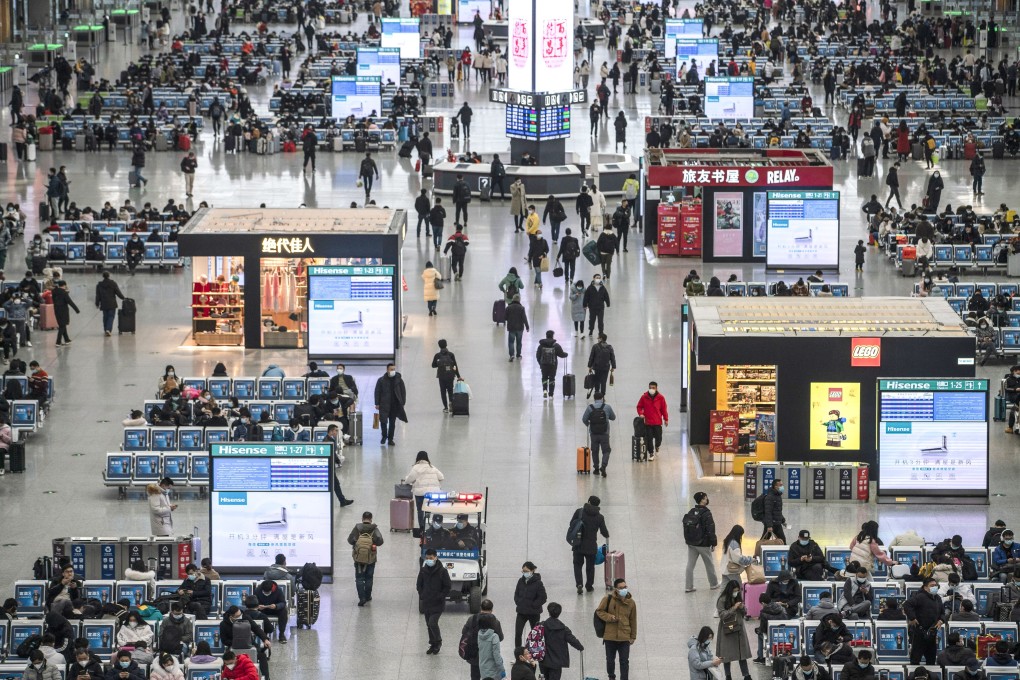Coronavirus in China: Beijing tells local governments to ease overly strict travel curbs for Lunar New Year
- The authorities are keen to limit the numbers travelling, but some local officials have gone further than the central government
- Health officials criticised the ‘lazy’ measures and many authorities have eased their rules after being criticised by Beijing

China’s central government has urged local authorities to ease unduly strict Covid-19 prevention policies criticising them as unnecessary and counterproductive.
A number of county and town-level government officials have introduced testing policies that go further than Beijing recommends or imposed mandatory quarantines on those returning home from other parts of the country.
The Chinese national health commission criticised those officials for “being lazy” and called on them to institute “accurate prevention and control” measures last week.
Normally, the world’s largest annual migration occurs during China’s Lunar New Year holiday period, during which hundreds of millions travel to their hometowns for family reunions.
Because this creates a high risk of spreading coronavirus the central government has asked people to stay where they are and local governments have been encouraged to offer incentives for remaining.